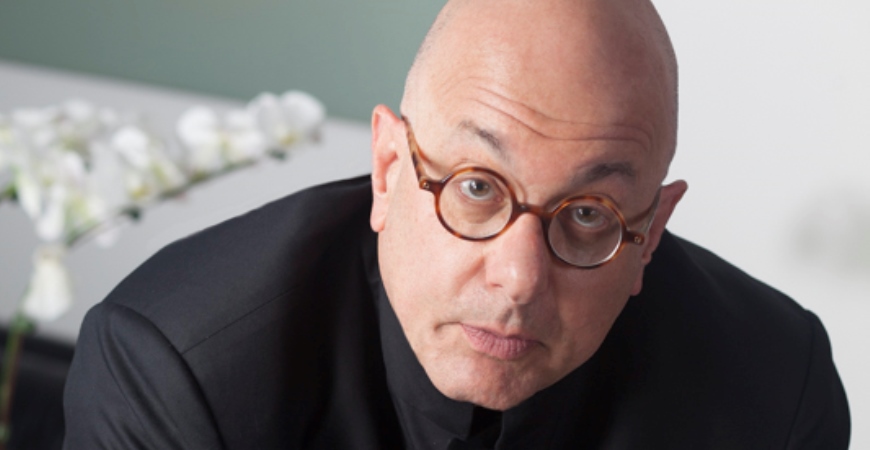Bartók beyond Hungary
This essay had been written by President of Bard College Conservatory, well-known musicologist and conductor, Leon Botstein on Bartók's influence on 20th century music.
Of the three dominant twentieth century innovators in musical composition, Stravinsky, Schoenberg and Bartók, from today’s perspective, Bartók may turn out to have the most lasting influence on new music and may remain the most popular. The irony is that in his lifetime and until 1990, his reputation among the three was most routinely associated with a single national identity: to his Hungarian character. But his posthumous popu- larity and influence derive from how he transcended the Hungarian. And the music written after he left Hungary, during his last years in the United States, in exile, offers the crowning achievement in fashioning local traditions into a universal music of unmistakable originality and profound meaning.
The mature Bartók was no ordinary nationalist or cultural chauvinist. After World War I, his music demonstrates a dynamic tension between Bartók the innovative composer and Bartók the ethno-musicological scholar. He welcomed his 1934 appointment to the Hungarian Academy to pursue research into folk music full time. Bartók’s discoveries concer- ning folk music deepened his strong anti-fascist and anti-authoritarian political convictions and his resistance to the aggressive political natio- nalism of the interwar years. Branded as a ‘degenerate’ artist by the Nazis, by 1939 Bartók was not only frightened by the annexations of Austria and Czechoslovakia, but was also deeply skeptical and mistrustful of the Hungarian regime. He became a committed internationalist, whose groundbreaking scholarship revealed deep family resemblances and similarities in the folk music of Hungary, Romania, Slovakia, Turkey and North Africa. He chose to escape a Europe caught in the grip of intolerance and tyranny.

Leon Botstein (Photo: Ric Kallaher)
Bartók’s enthusiasm for documenting and analyzing folk music uncorrupted by cities and mechanized industry inspired his distinctive use of rhythm and harmony. The fourth movement of the 1943 Concerto for Orchestra utilizes discoveries Bartók made while working with A.B. Lord at Columbia University in New York City on newly collected Serbo-Croatian materials. The experience of exile in America forced Bartók into political activity against fascism and triggered a lyrical nostalgia that was able to reach audiences all over the world. The distance from Hungary and Europe and the pluralist democratic cultural context of America helped shape his powerful late music—particularly the 3rd Piano Concerto.
Indeed, there has been all too much simplified exaggeration about how poorly Bartók fared in the United States between 1940 and his death in 1945. He was given an honorary degree by Columbia (where he was employed), and invited to lecture at Harvard. He was commissioned to write major works for major orchestras (Boston) and soloists (Yehudi Menuhin, Walter Primrose and Benny Goodman). There were many major performances of his works and although his own concertizing turned out to be less successful than he had hoped, Bartók was hardly forgotten or overlooked, the small attendance at his funeral notwithstanding.
In America, Bartók refined the manner in which he transfigured the rhythmic, melodic and harmonic characteristics of an oral, non-notated tradition of rural folk music into strategies adequate to music in modernity. His ambition was to use universal folk traditions of musical expression to create large formal aesthetic structures. The Hungarian, like all other folk music, became a building block in an international vocabulary.
But the lasting residue of Bartók’s scholarly work, particularly his writings in his American years, was a commitment in music to a basic characteristic of all folk music—a magical accessibility, transparency and rigorous logic—even in complexity, as his use of Bulgarian rhythms and so called ‘polymodal chromaticism’ (a term he used in his 1943 Harvard lectures) suggests. The synthesis that emerged from Bartók’s universalist sense of art in his last works was based on a lifelong respect for pre-literate musical rhetoric. His modernist imagination was disciplined with integrity in order to captivate the performer and listener without compromise or condescension. These intentions flourished in his American years. Bartók’s voluntary exile helped secure his enduring place as one of the world’s greatest composers.
Leon Botstein


